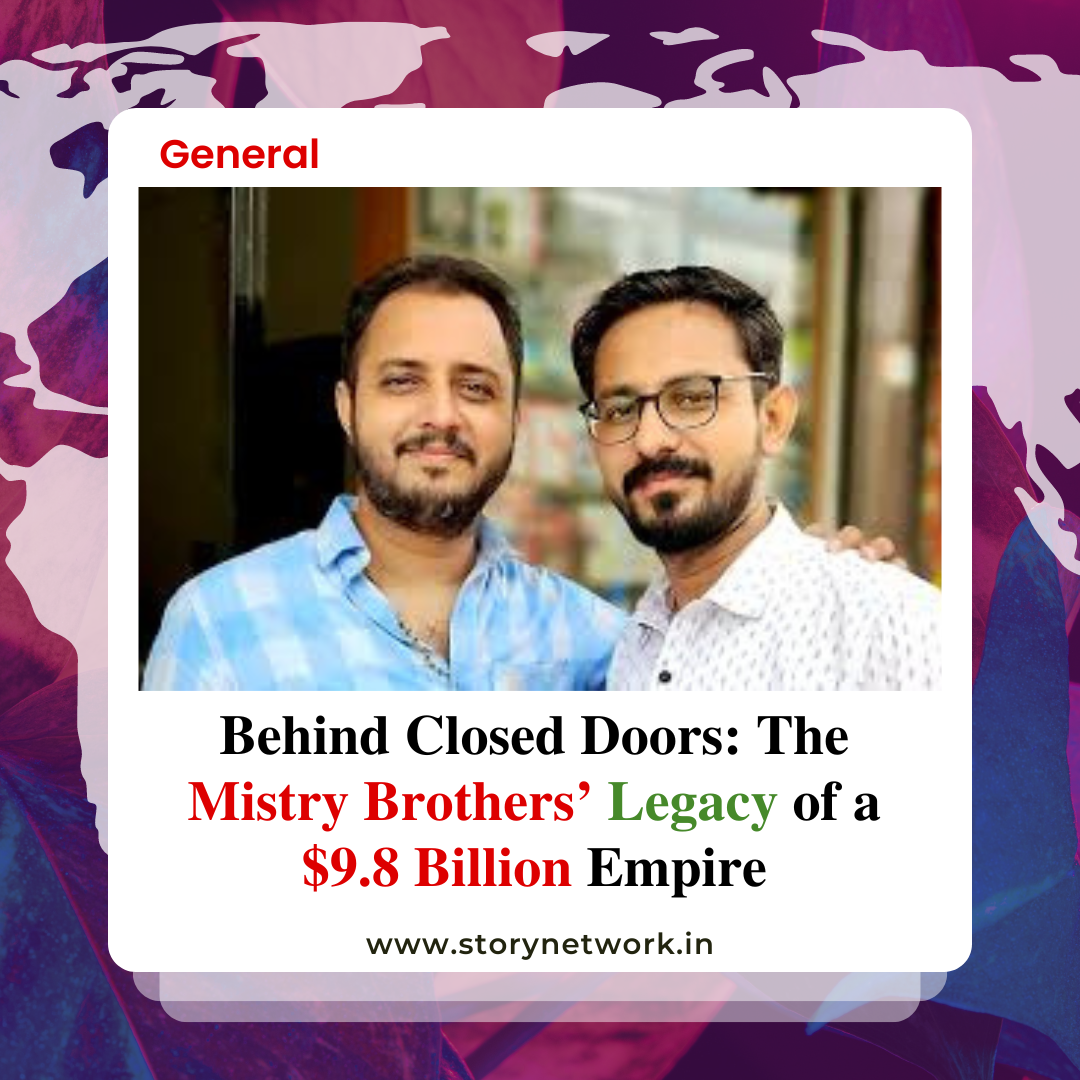The Mistry Brothers: Heirs to a Legacy, Navigating a Billion-Dollar Inheritance with Quiet Determination
In the towering shadows of their storied family legacy, Zahan and Firoz Mistry have quietly stepped into roles that will shape the future of one of India’s most influential conglomerates. The young heirs, aged 25 and 27 respectively, carry a burden not just of wealth—$9.8 billion to be precise—but of immense responsibility that accompanies their inheritance of a significant stake in Tata Sons, the holding company of the Tata Group, one of India’s largest and most respected business empires.
The Mistry brothers’ fortunes are largely attributed to their late father, Cyrus Mistry, the erstwhile chairman of Tata Sons, who tragically passed away in an accident in September 2022. Born into a family with deep roots in the industrial sector, the brothers have inherited not just their father’s shares in the Tata conglomerate, but also the mantle of continuing the legacy of the Shapoorji Pallonji Group—a construction and real estate giant with a history stretching back over a century.
Despite their monumental wealth and the extraordinary expectations placed upon them, Zahan and Firoz have chosen a path of relative obscurity, shunning the limelight that often accompanies figures of such stature. The brothers, who hold Irish citizenship but reside in Mumbai, have taken up executive roles in their family business, marking a new chapter in the Mistry dynasty’s narrative.
Zahan, the younger of the two, is a graduate of Yale University, an institution renowned for producing some of the world’s most influential leaders. His education, combined with the values instilled in him by his family, has equipped him with a global perspective—a vital asset as he navigates the complex world of business. Firoz, on the other hand, brings a more traditional academic background to the table, having graduated from the University of Warwick. His education in one of the UK’s leading universities provides him with a strong foundation in the principles of economics and management, crucial for steering the family business through the challenges of modern-day industry.
Their return to the family fold, taking up executive responsibilities after 18 months, signals a clear intent to not just preserve but expand their business interests. It is a testament to their commitment to uphold the values and work ethic that their father, and indeed their entire family, has long been known for. The Mistry brothers’ move is also a reflection of their recognition of the evolving dynamics of global business, where heritage and tradition must be balanced with innovation and foresight.
But the road ahead for Zahan and Firoz is fraught with challenges. The corporate world they are stepping into is markedly different from the one their father and forebears navigated. Global markets are more interconnected, competition is fiercer, and the stakes—both financially and reputationally—are higher. As they take on the reins, they will need to navigate not only the expectations of the Tata Sons board and shareholders but also the complexities of sustaining a business empire that spans continents and industries.
Their journey will also be closely watched by the business community, not just in India but around the world. As the youngest members of a family that has played a pivotal role in shaping the economic landscape of India, Zahan and Firoz’s decisions will likely set the tone for the next phase of the Shapoorji Pallonji Group’s evolution. In doing so, they will need to strike a delicate balance between innovation and tradition, ensuring that the values that have been the bedrock of their family’s success are not lost in the pursuit of growth and expansion.
In many ways, Zahan and Firoz Mistry are emblematic of a new generation of Indian business leaders—global in outlook, grounded in tradition, and poised to lead with a quiet confidence that belies their youth. As they step into their new roles, the world will be watching closely to see how these young scions of industry will shape the future of one of India’s most iconic business dynasties.




